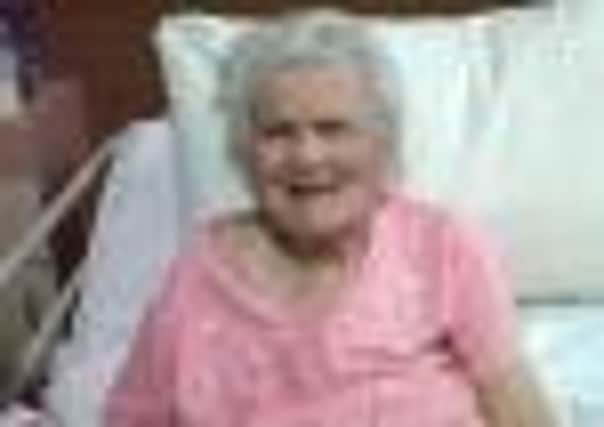Families furious at not being told about ‘pathway to death’ policy at Lothians hospitals


The Liverpool Care Pathway (LCP), which is designed to improve care of dying patients but can see feeding tubes and nutrition withdrawn, is being rolled out across the region.
New figures reveal that in the six months to the end of August, the LCP was adopted for 616 patients in Lothian hospitals and in a 12-month period, the LCP was implemented for 293 other patients in the community.
Advertisement
Hide AdAdvertisement
Hide AdNHS Lothian said discussions were held with patients’ family members before the use of the LCP was approved.
But James Caven (pictured inset right) a 36-year-old from Tranent, says that when his grandmother Mary Scott, 87, was put on the LCP last month the family was not informed, even after he asked why her feeding tubes had been removed.
Mr Caven’s allegations follow those of Peter Tulloch, who accused doctors at the Western General Hospital of attempted murder after he visited his mother Jean in March and found that her feeding tubes had been taken out. Ms Tulloch survived for another two weeks after her drip was reinstated.
Mr Caven spoke out as Dr Nanette Milne, Conservative public health spokeswoman, called for an inquiry into the use of the LCP in Scotland.
Advertisement
Hide AdAdvertisement
Hide AdMr Caven says his grandmother was “screaming in pain” after her nutrition was withdrawn. She had to have Vaseline applied to her lips as her mouth was so dry, before she was sedated and died on November 5 – two weeks after the LCP commenced.
Mr Caven said: “They were saying they couldn’t give her food or fluids through her mouth because there was a risk of her choking. I asked why they couldn’t feed her through a tube and they said that the senior doctors wouldn’t authorise it and that she was dying. I knew she was dying – of malnourishment.” The painter and decorator said it was he only after he found out about the LCP himself that staff at the Midlothian Community Hospital conceded Ms Scott, who was admitted after complications from a hip replacement three years ago, had been put on the pathway.
Mr Caven, below, added: “I asked about the LCP and they just offered me a leaflet. We think they were killing her off, there was no family consultation at all.
“It’s just leaving people to die. Without the LCP we believe she would still be here today.” Advocates of LCP say it improves end of life care and last month it won the backing of prominent Scottish GPs, while 22 organisations signed a consensus statement supporting the process.
Advertisement
Hide AdAdvertisement
Hide AdBut critics claim communication with family members and patients is often inadequate and that patients can be placed on the LCP too soon – sometimes to empty hospital beds.
In its Quality Improvement Strategy for 2011-2014, NHS Lothian said it wanted to “increase the number of patients on the LCP at the end of their life”.
From the 616 patients that were in Lothian hospitals over six months on the LCP, which is used to document end of life care when doctors think a patient is dying, 28 were later taken off. Seven of the 293 LCP patients in the community were later removed from it.
Dr Milne said it was “astonishing” that the Scottish Government did not record which health boards used the LCP.
Advertisement
Hide AdAdvertisement
Hide AdShe added: “Allegations like the ones made by these families in Lothian show exactly why an Inquiry is needed.”
Tracey Gillies, NHS Lothian’s associate divisional medical director, said: “The LCP is used to help provide the best possible care to patients who are in the last days or hours of life.
“The decision to consider using it is always taken by a senior clinician and staff involved in a patient’s care.
“Sensitive discussions are held with a patient’s next of kin and family to ensure they are included in the decision-making process.”